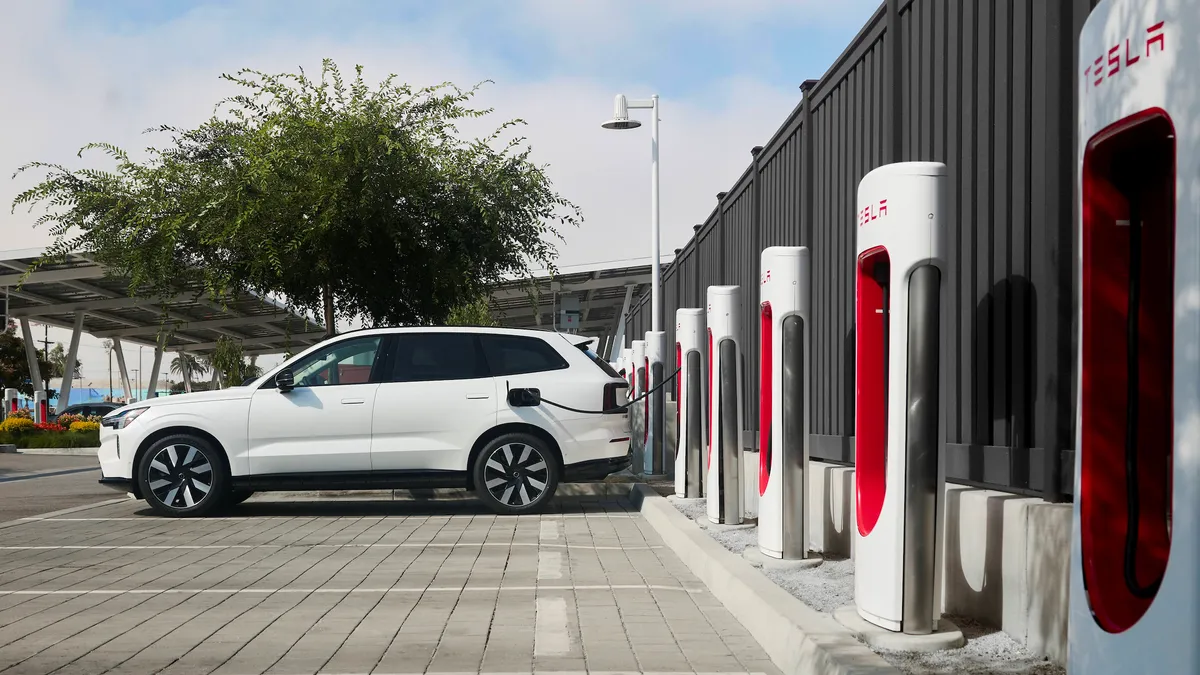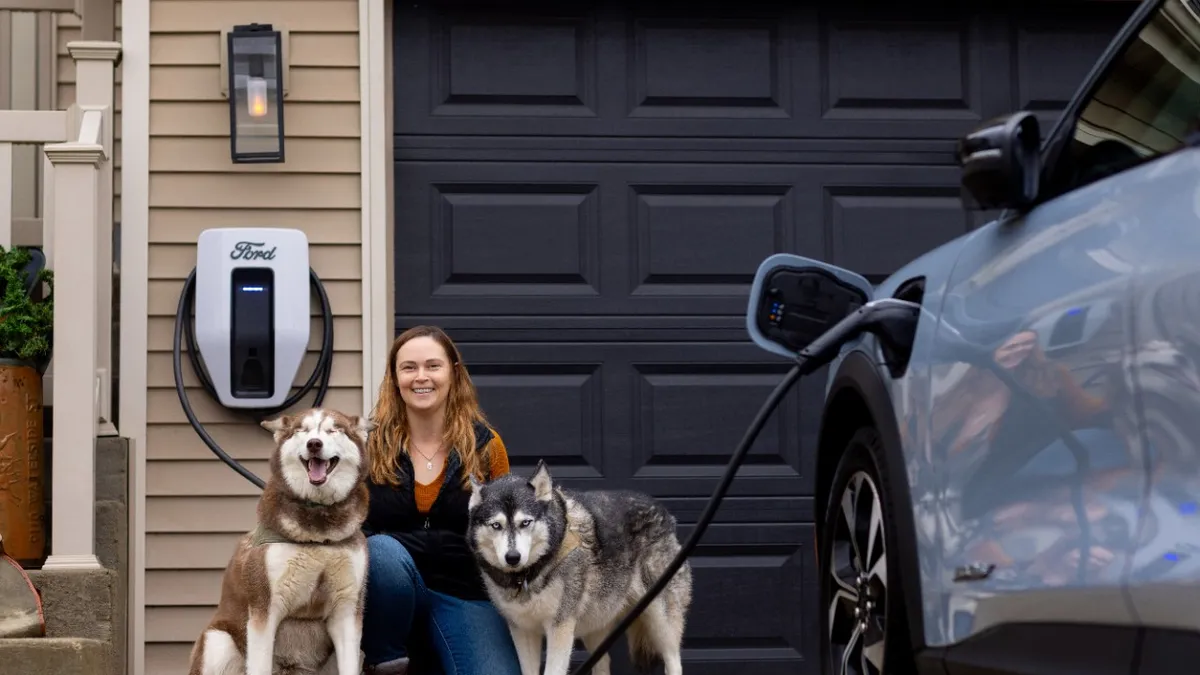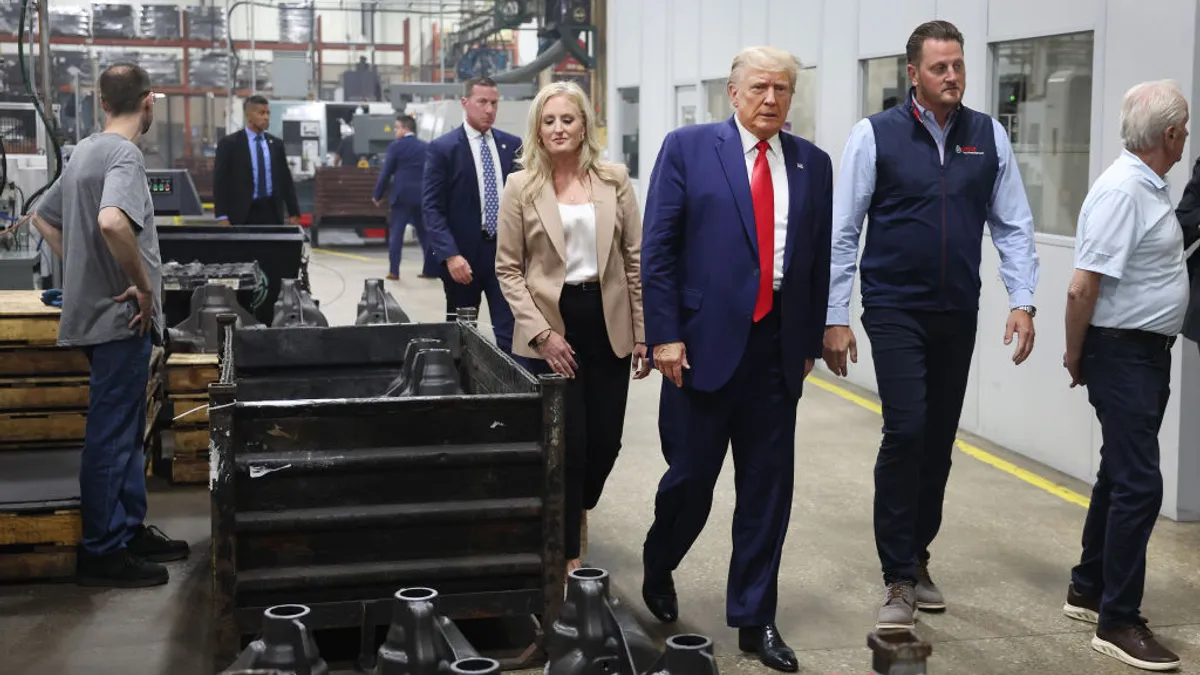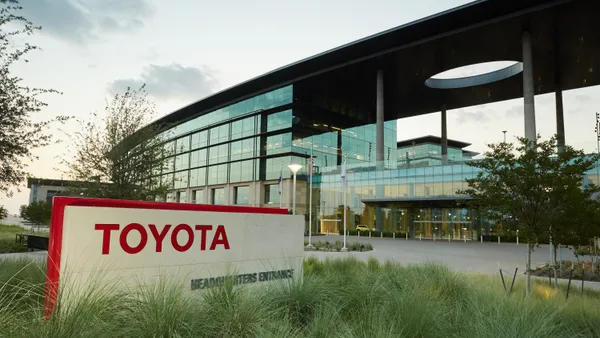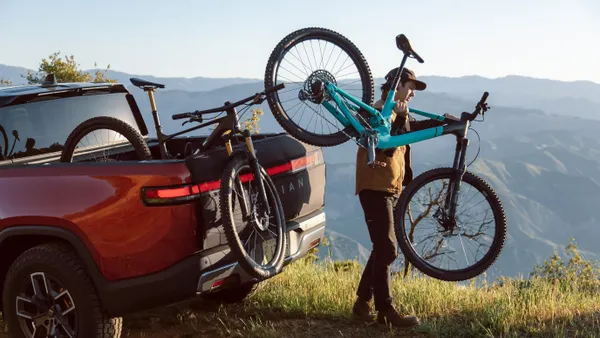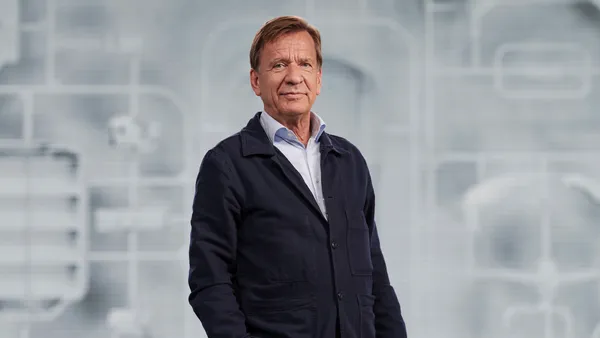Dive Brief:
- Volvo Cars announced the availability of a North America Charging Standard adapter allowing its EV customers in the U.S. and Canada to access Tesla’s Supercharger network, according to an Oct. 29 press release.
- The adapter can be preordered immediately from Volvo Cars, with shipments expected to begin on Nov. 18. Volvo customers will gain access to approximately 17,800 additional Tesla charge points in North America with the adapter.
- Volvo Cars announced last year it was adopting the NACS port for its future EVs, joining many other OEMs including Ford Motor Co., General Motors, Honda, Kia and Rivian, in adopting Tesla’s design, which was first made available to third parties in November 2022.
Dive Insight:
The lack of convenient public charging infrastructure is among the several barriers slowing EV adoption in North America. Tesla operates the largest global charging network with over 60,000 Superchargers, with DC fast chargers accounting for three out of every four chargers, according to the company. Offering customers’ access to the Tesla charging network may help Volvo Cars and other automakers boost their EV sales.
The new NACS adapters can be ordered at authorized Volvo Cars retailers in the U.S. and Canada for $230.
The automaker’s current EV lineup includes the XC40 and C40 Recharge models, the EX90 full-size SUV and compact EX30. Availability of adapters for the new Volvo EX30 SUV will be announced at a later date.
The Supercharger locations are also being integrated into the Volvo Cars app, allowing drivers in the U.S. and Canada to locate tens of thousands of additional public charging stations, get real-time information on their status, as well as the ability to pay for a charging session via a single interface. Charging stations and directions to them can also be found by asking the built-in Google Assistant included in the infotainment system of Volvo vehicles.
“As part of our journey to electrification, we want to make life with an electric car, including our new flagship EX90, as seamless as possible,” Mike Cottone, president, Volvo Car USA and Canada, said in the release. “Today we are taking a major step to providing access to easy and convenient charging infrastructure for Volvo drivers in the United States and Canada, furthering our commitment to EV adoption.”
The NACS port remained a proprietary design before Tesla made it open source to third parties to promote widespread EV adoption. As a result, many automakers have committed to switch from the Combined Charging Standard (also known as the SAE J1772 combo) to the NACS, so their future EV customers have more charging options.
The various adapters being offered by Volvo Cars and other automakers are an interim step until their future EVs come standard with the NACS port and will no longer require an adapter. However, drivers of future Volvo EVs equipped with the NACS port can still charge at locations equipped with CCS plugs using an adapter that the company will provide.
But the rollout of NACS adapters by other automakers has not been without issues. The first of these adapters Ford shipped to customers were recalled for having a potential issue that could cause reduced charging speeds, and in some cases cause damage to the vehicle’s charge port, according to a service bulletin sent to customers last month. Ford is currently sending out replacements.
However, the NACS adapter is not required to charge an EV. All electric models sold in the U.S. have the ability to charge using Level 1 and Level 2 chargers equipped with CCS plugs, according to the Department of Energy.
Prior to Tesla making its NACS design available to its rivals, non-Tesla EVs in North America came equipped with the CCS port. General Motors for example, announced the availability of an approved NACS adapter in September, allowing its current EVs equipped with CCS ports to connect to a NACS plug.
But now the long-term future of CCS remains unclear after SAE International announced in June 2023 it would standardize the NACS plug for EVs. The move ensures that any supplier or OEM will be able to use, manufacture or deploy the NACS connector on EVs and at charging stations across North America.



